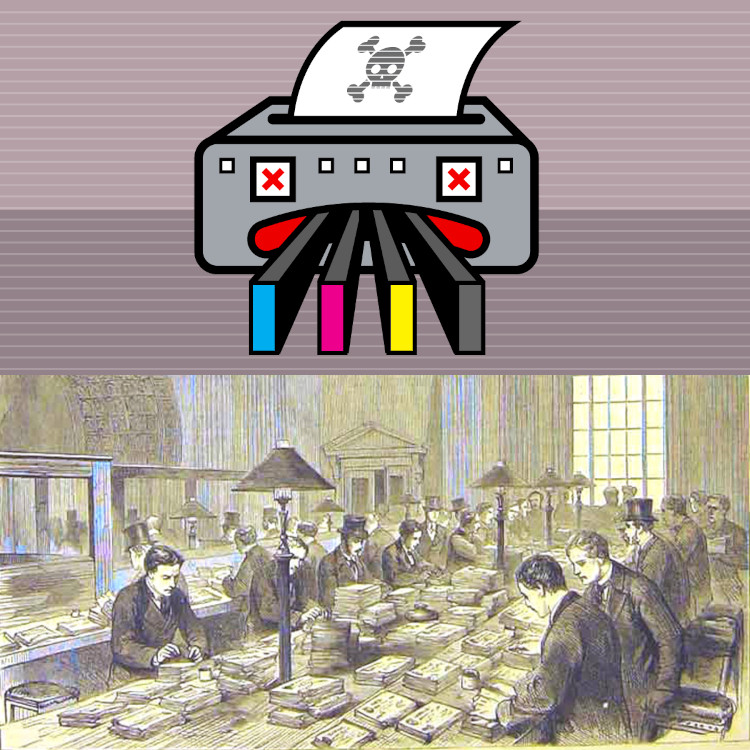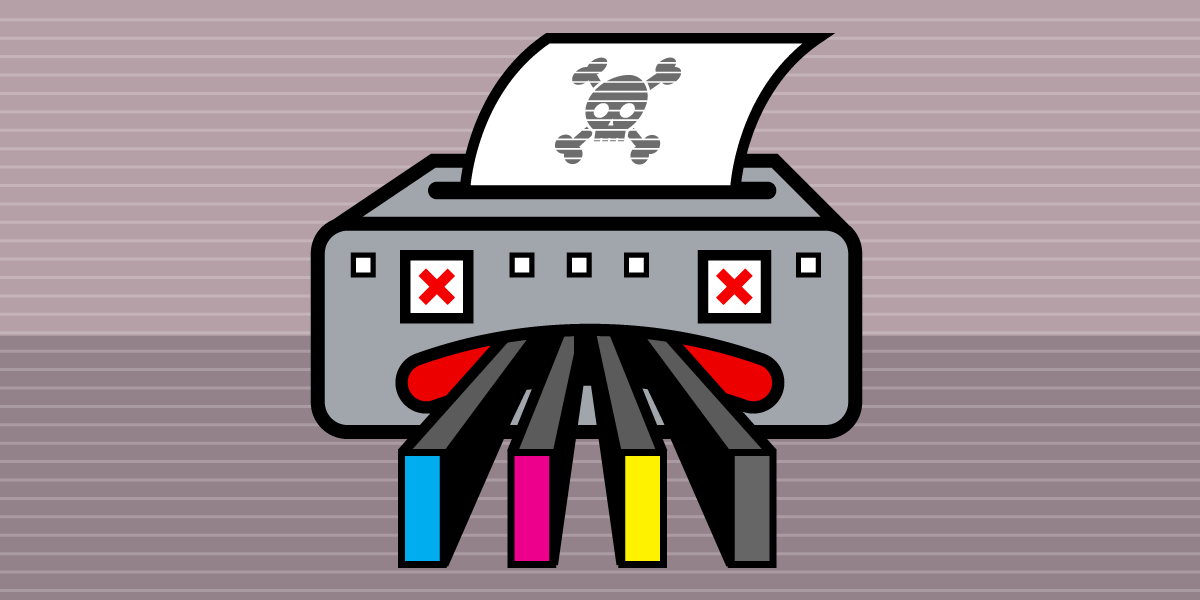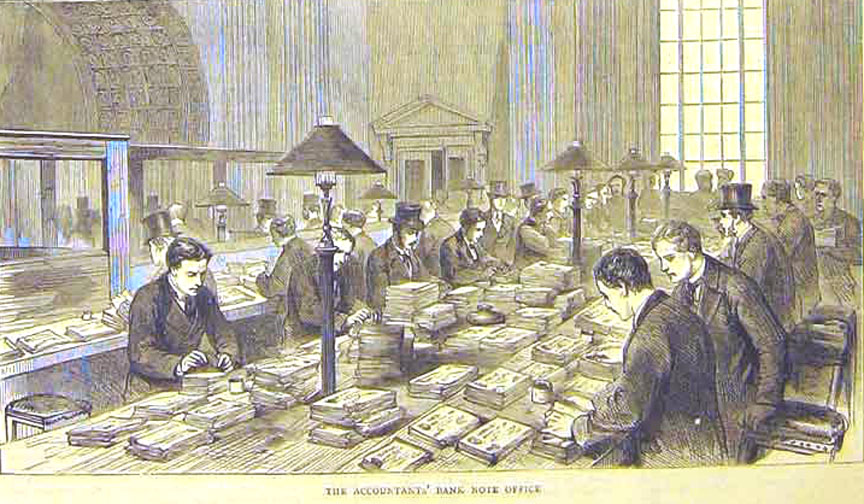
Today's Twitter threads (a Twitter thread).
Inside: Uber loses (another) $6.8b; Ring helped LAPD spy on BLM protests; and more!
Archived at: pluralistic.net/2021/02/16/rin…
#Pluralistic
1/
Inside: Uber loses (another) $6.8b; Ring helped LAPD spy on BLM protests; and more!
Archived at: pluralistic.net/2021/02/16/rin…
#Pluralistic
1/

Tomorrow, I'm giving a talk called "Technology, Self-Determination, and the Future of the Future" for the Purdue University CERIAS Program:
cerias.purdue.edu/news_and_event…
2/
cerias.purdue.edu/news_and_event…
2/

Uber loses (another) $6.8b: The market can stay predatory longer than you can stay angry.
3/
https://twitter.com/doctorow/status/1361685471454093316
3/

Ring helped LAPD spy on BLM protests: The public-private surveillance partnership from hell.
4/
https://twitter.com/doctorow/status/1361695179246161920
4/

#20yrsago P2P Goes in Search of 'Doogle' web.archive.org/web/2002101906…
#15yrsago Tech companies defend profiteering to Holocaust survivor Congressman web.archive.org/web/2006022103…
#10yrsago Dapper Day at Disneyland: the well-dressed go to the fun-park thedisneyblog.com/2011/02/16/dap…
5/
#15yrsago Tech companies defend profiteering to Holocaust survivor Congressman web.archive.org/web/2006022103…
#10yrsago Dapper Day at Disneyland: the well-dressed go to the fun-park thedisneyblog.com/2011/02/16/dap…
5/

#10yrsago Watch: Claude Shannon, Jerome Wiesner and Oliver Selfridge in a 1960s AI documentary
#10yrsago NYC: Chinatown’s last grungy arcade hangs on scoutingny.com/the-last-arcad…
6/
#10yrsago NYC: Chinatown’s last grungy arcade hangs on scoutingny.com/the-last-arcad…
6/

#5yrsago Matt Ruff’s “Lovecraft Country,” where the horror is racism (not racist) memex.craphound.com/2016/02/16/mat…
#5yrsago Hackers steal a hospital in Hollywood nbclosangeles.com/news/fbi-lapd-…
7/
#5yrsago Hackers steal a hospital in Hollywood nbclosangeles.com/news/fbi-lapd-…
7/

#5yrsago NSA and GCHQ’s crappy Big Data techniques may be killing thousands of innocents arstechnica.com/information-te…
8/
8/

Yesterday's threads: ADT insider threat; Billionaires think VR stops guillotines; Privacy Without Monopoly; and more!
9/
https://twitter.com/doctorow/status/1361377716881137667
9/

My latest novel is Attack Surface, a sequel to my bestselling Little Brother books. @washingtonpost called it "a political cyberthriller, vigorous, bold and savvy about the limits of revolution and resistance."
Get signed books from @darkdel: darkdel.com/store/p1840/Av…
10/
Get signed books from @darkdel: darkdel.com/store/p1840/Av…
10/
My 2020 book "How to Destroy Surveillance Capitalism" is a critique of Big Tech connecting conspiratorial thinking to the rise of tech monopolies and proposing a way to deal with both:
onezero.medium.com/how-to-destroy…
Now, it's available in paperback!
bookshop.org/books/how-to-d…
11/
onezero.medium.com/how-to-destroy…
Now, it's available in paperback!
bookshop.org/books/how-to-d…
11/

My ebooks and audiobooks (from @torbooks, @HoZ_Books, @mcsweeneys, and others) are for sale all over the net, but I sell 'em too, and when you buy 'em from me, I earn twice as much and you get books with no DRM and no license "agreements."
craphound.com/shop/
12/
craphound.com/shop/
12/

Upcoming appearances:
* Technology, Self-Determination, and the Future of the Future (Purdue CERIAS), Feb 17, cerias.purdue.edu/news_and_event…
* Keynote, NISO Plus, Feb 22, niso.plus/cory-doctorow-…
13/
* Technology, Self-Determination, and the Future of the Future (Purdue CERIAS), Feb 17, cerias.purdue.edu/news_and_event…
* Keynote, NISO Plus, Feb 22, niso.plus/cory-doctorow-…
13/

Recent appearances:
* Chop Shop Economics soundcloud.com/chopshopeconom…
* Monocle Reads monocle.com/radio/shows/me…
* Hedging Bets on the Future (Motherboard Cyber):
play.acast.com/s/cyber/hedgin…
14/
* Chop Shop Economics soundcloud.com/chopshopeconom…
* Monocle Reads monocle.com/radio/shows/me…
* Hedging Bets on the Future (Motherboard Cyber):
play.acast.com/s/cyber/hedgin…
14/

My first picture book is out! It's called Poesy the Monster Slayer and it's an epic tale of bedtime-refusal, toy-hacking and monster-hunting, illustrated by Matt Rockefeller. It's the monster book I dreamt of reading to my own daughter.
pluralistic.net/2020/07/14/poe…
15/
pluralistic.net/2020/07/14/poe…
15/

You can also follow these posts as a daily blog at pluralistic.net: no ads, trackers, or data-collection!
Here's today's edition: pluralistic.net/2021/02/16/rin…
16/
Here's today's edition: pluralistic.net/2021/02/16/rin…
16/
If you prefer a newsletter, subscribe to the plura-list, which is also ad- and tracker-free, and is utterly unadorned save a single daily emoji. Today's is "👎🏼". Suggestions solicited for future emojis!
Subscribe here: pluralistic.net/plura-list
17/
Subscribe here: pluralistic.net/plura-list
17/
Are you trying to wean yourself off Big Tech? Follow these threads on the #fediverse at @pluralistic@mamot.fr.
Here's today's edition: mamot.fr/@pluralistic/1…
eof/
Here's today's edition: mamot.fr/@pluralistic/1…
eof/
• • •
Missing some Tweet in this thread? You can try to
force a refresh










